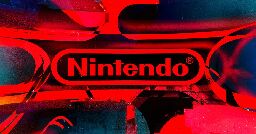Nintendo Switch emulator, Yuzu, developers settling lawsuit from Nintendo with $2.4M payout, handing over its domains, and agreeing "Yuzu [is] primarily designed to circumvent [DRM]".


theverge.com
This also includes ceasing development and destroying their copies of the code.
The GitHub repo page for Yuzu now returns a 404, as well. In addition, the repo for the Citra 3DS emulator was also taken down.
As of at least 23:30 UTC, Yuzu's website and Citra's website have been replaced with a statement about their discontinuation.
Other sources found by @Daughter3546@lemmy.world:
- https://gbatemp.net/threads/yuzu-emulator-shutting-down-paying-nintendo-2-4-million-in-lawsuit-settlement.650039/
- https://www.gamesindustry.biz/nintendos-yuzu-lawsuit-puts-emulation-in-the-spotlight-opinion
- https://www.ign.com/articles/nintendo-says-tears-of-the-kingdom-was-pirated-1-million-times-pre-release-in-lawsuit-against-emulator-creator
There is also an active Reddit thread about this: https://www.reddit.com/r/Games/comments/1b6gtb5/
You are viewing a single comment
Does a settlement like this set any kind of precedent?
According to the article:
So I think they're definitely intending to set precedent with this case, though this settlement hasn't been accepted by the court yet.
AFAIK settlements can't be used as precedent. IANAL tho.
Maybe precedent isn't the right term, I worry a statement from an emulator author basically saying "emulators are DRM circumvention devices", could be used as evidence in future though?
Lawyer here, and generally no. At best, the judgment could be persuasive to other courts in the First Circuit--and of course that's what Nintendo wants, hence the effort to craft language that could be easily ported to other sympathetic courts--but the legal theory is absolutely not binding on other parties until/unless the finding/rationale is adopted by a higher court.
Do you think it's possible that Nintendo is having the devs agree to that statement is a way for them to prevent others from forking Yuzu and continuing development? If someone stripped out the ROM decryption code, it would be harder to claim the fork falls under 17 U.S.C. 1201 as a circumvention tool. By having the original creators state it is, would it open up derivative works to being classified as one in future lawsuits regardless of whether it still contains the questionable code?
It's already a tragedy if original developers will no longer work on it. They also worked on citra. Generally speaking, I think human resource is crucial and emu devs aren't doing enough to protect themselves.
It'd feel a bit gross if so, considering they were coerced in to saying it by the terms of the settlement.
The judge allowing Yuzu to make the statement doesn't make it legally relevant in any context. It's not.
It doesn't need to set any kind of precedent. That was set decades ago in this case.
Nintendo isn't arguing against emulation itself, they're challenging Yuzu on the anti-circumvention part of the DMCA. There isn't precedent for going against emulators using that yet AFAICT; Sony v. Bleem is entirely unrelated.
I'm not talking about that. I'm talking about Universal City Studios, Inc. v. Reimerdes/Universal City Studios, Inc. v. Corley and others.
I don't think that applies in this case since DeCSS was unambiguously and primarily designed to strip DRM (with interoperability as a consequence), while Yuzu was primarily designed to emulate a system (with DRM "circumvention" as a consequence).
They put features into yuzu to specifically decrypt games (if you provide a key), it's the same thing.